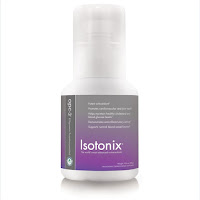Paint Your Heart Healthy with Flavonoids


The NPF Science Update brings you news about scientific advances in the field of natural products. The Science Update features contributions from scientists, academics, doctors, healthcare professionals, industry veterans and other experts.
By Kimberly Beauchamp, ND
Eating more colorful, flavonoid-rich fruits and vegetables may reduce the chance of dying from heart disease by up to 40%, says a study in the American Journal of Clinical Nutrition.

Fix it before it breaks
Preventing heart disease is easier than curing it. We already know a lot about how to keep the heart happy, like
- not smoking,
- maintaining a healthy weight,
- keeping blood pressure in check, and
- getting regular physical exercise.
Eating more fruits and vegetables is also key to preventing heart disease. These foods are rich in magnesium, potassium, and fiber that can help regulate blood pressure and blood sugar levels.
Brightly colored fruits and veggies are also high in flavonoids, plant compounds that give foods such as oranges, broccoli, and so on their characteristic hues. Flavonoids have anti-inflammatory and antioxidant actions in the body. They also inhibit the oxidation of LDL (“bad”) cholesterol and encourage blood vessel walls to relax, helping to lower blood pressure.
As part of the Cancer Prevention Study II Nutrition Cohort, researchers from the American Cancer Society and Tufts University investigated how different types of flavonoid compounds in the diet might protect against death from heart disease. In the study, 38,180 men and 60,289 women (average age 69 and 70, respectively) gave detailed information about their diets. The amount and types of dietary flavonoids were estimated for each participant. For the next seven years, the participants were followed and deaths due to heart disease were recorded.
- Of the seven classes of flavonoids studies, five of them were associated with a lower risk of heart disease death.
- Risk of fatal heart disease was 18% lower in men and women who had the highest amounts of total flavonoids in their diets those with the lowest. The risk of fatal stroke dropped by 37% in men with the highest total flavonoid intake.
- The subclass of flavonoids called flavones was especially beneficial for women. Women with the highest flavone intake had a 26% reduction in risk of overall heart disease death and a 40% reduction in risk of death from heart attack.
“Even relatively small amounts of flavonoid-rich foods may be beneficial for reducing risk of fatal cardiovascular disease,” commented the researchers.
Brighten your plate for a happier heart
 |
| OPC-3 #1 Bioflavonoid in the world |
Getting more flavonoids into your diet is as easy as blueberry pie. Just aim for a rainbow of colors throughout the day. You don’t have to get them all in at every meal, but when you’re planning your five-a-day of fruits and vegetables, make sure they’re not all in the white family.
Raspberries, strawberries, apples, blueberries, green tea, black tea, dark chocolate, red grapes, purple cabbage, red wine, oranges, grapefruit, kale, broccoli, onions, and leeks are all loaded with heart-healthy flavonoids.
Parsley, thyme, oregano, celery, and green chili peppers are rich sources of the subclass of flavonoids called flavones. These are the ones that may be especially helpful for women.
About Natural Products Foundation: NPF is a 501 (c) 3 not-for-profit corporation. For more information about this story and the foundation visit: naturalproductsfoundation.org.
Story Source: Kimberly Beauchamp, ND, received her doctoral degree from Bastyr University, the nation’s premier academic institution for science-based natural medicine. She co-founded South County Naturopaths in Wakefield, RI, where she practiced whole family care with an emphasis on nutritional counseling, herbal medicine, detoxification, and food allergy identification and treatment. Her blog, Eat Happy, helps take the drama out of healthy eating with real food recipes and nutrition news that you can use. Dr. Beauchamp is a regular contributor to Healthnotes Newswire. The above story is reprinted from materials provided by Aisle7. All rights reserved.
References: (Am J Clin Nutr 2012;95:454–64)
No comments:
Post a Comment